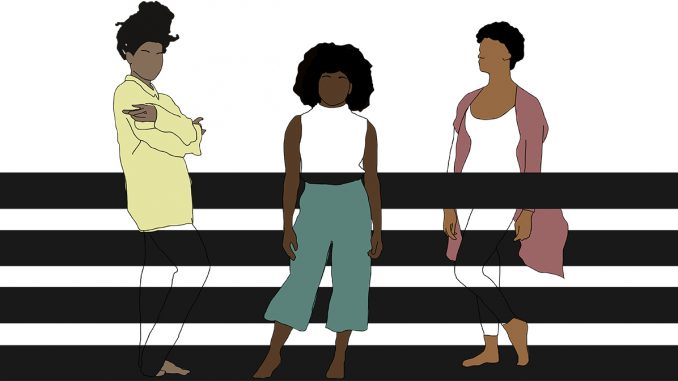

If Lifetime’s docu-series “Surviving R. Kelly” has taught us anything, it’s that Malcolm X was right in saying, “The most disrespected person in America is the Black woman.”
Consisting of six episodes, the series reveals Robert Kelly’s history of alleged sexual misconduct. Famously known as R. Kelly, the R&B singer-songwriter, producer and former professional basketball player was allegedly able to sexually abuse underage girls for two decades.
He got away with it because society oversexualizes Black girls. In comparison to white girls, the perception is we are far from innocent, which is astounding to me.
“Mr. Kelly has been able to get away with sexual misconduct for over two decades, part of it being stardom and another part is his choice in victims,” Lee Merritt, the attorney for a Dallas woman alleging Kelly knowingly gave her a sexually transmitted disease, told The Temple News. “We have a tendency to villainize young Black girls because they wanted it and it is their faults.”
As a Black woman, I can say that if we have sex at a very young age, it’s because some of us aren’t raised to see our value as people but only as sexual beings.
Would you say Kelly only targeted Black girls because no one would do anything about it? I would.
“Adults tend to think that Black girls need less protection than white girls and that they have more sex than white girls, which is part of why people outside of the African-American community do not investigate sexual assault allegations against Black girls,” said Sonja Peterson-Lewis, an Africology and African-American studies and psychology professor.
Prior to the series, Kelly was not even putting in any real effort to hide his actions. He married 15-year-old Aaliyah and courted girls from Chicago high schools to fulfill his fantasies.
In 2002, police opened an investigation after a video appeared to show Kelly having sex with a 14-year-old girl. He was acquitted of child pornography-related charges during a trial in 2008.
During an interview for BET following the trial, Kelly was asked, “Do you like teenage girls?”
“When you say teenage, how old are we talkin’?” Kelly asked the interviewer.
Some people, like fans of Kelly’s music, found it easier to just turn a blind eye to the scandal, said Timothy Welbeck, an Africology and African American Studies instructor.
“It was easier to pretend as though these things did not happen,” Welbeck said.
Society enabled his behavior by buying his music, working with him and selling out his shows. He was able to go on tour and work with mainstream artists while avoiding jail time because he’s famous. But it was also because people had little regard for the young women he allegedly took advantage of.
“Women are not treated the same,” Peterson-Lewis said. “There is a whole different mindset. Women [who have been assaulted] are often presumed guilty, and men are often presumed as possibly guilty but let’s give them a chance.”
People have consistently tried to find excuses to maintain and defend the legacy of a man they do not know. Since it’s at the expense of Black women’s integrity, it’s fine in their eyes.
Once the Lifetime series came out, none of the information was really that ground-breaking to me, because as a Black woman, you hear rumors about Kelly.
But I was in awe that after 20-30 years of accounts, this series was the one to make people care more. Welbeck made sense of it, pointing to the #MeToo and #TimesUp movements.
“The public has now found it fashionable to listen to victims of abuse,” Welbeck said.
If Kelly is convicted, the reason will be “popular pressure,” Merritt said.
I wish people would genuinely care about Black women, not just because it’s popular to do so. But to maintain optimism, we will have to continue the discussion and keep holding abusive men accountable for every offense they commit, especially when the integrity of Black women is on the line.



Be the first to comment